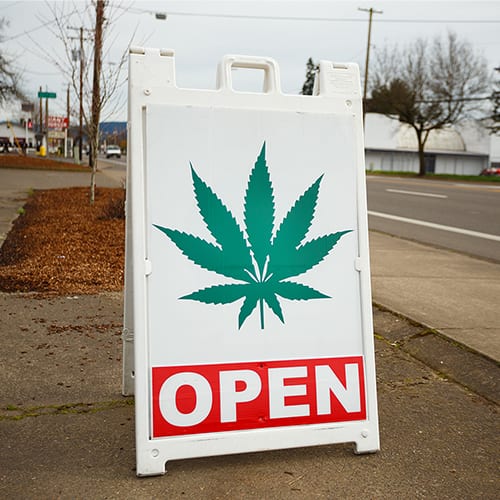
When California legalized recreational cannabis at the start of 2018, the city of Los Angeles wanted to use the opportunity to right some of the wrongs inflicted by the War on Drugs.
Under the city’s rules, people from low-income neighborhoods with disproportionately high prior cannabis arrests would be among the first to get approval to launch new cannabis businesses.
Nearly a year and a half later, candidates for the city’s “social equity” program are learning they’ll have to wait a bit longer for their chance to apply for a limited number of pot shop licenses.
The City Council voted Tuesday to open the application window by early September. But many social equity candidates say they can’t afford to keep waiting.
“It’s like they’re setting people up to fail — people that don’t actually know what kind of money it takes to do something like this,” said Moises Estrada, who hopes to open a shop in Downtown L.A.
Estrada said he qualifies for the social equity program due to a prior cannabis conviction. Like many hoping to enter the industry, Estrada signed a lease in early 2018 for a building that complies with the city’s strict cannabis zoning rules.
But he’s not sure he’ll be able to hold on to the property long enough to apply for a license. He said his investors have backed out, frustrated by the delays. And his landlord is considering eviction.
“I’m pretty much tapped,” Estrada said. “I’m almost ready to go bankrupt here, and so are the rest of my associates.”
The city has already given licenses to existing dispensaries. In its second phase of licensing, it licensed established cultivators, distributors and manufacturers. But it has not begun Phase 3, which will provide licenses to new businesses — with priority given to social equity applicants.
Ahead of Tuesday’s city council meeting, Department of Cannabis Regulation executive director Cat Packer said the city’s timeline could keep social equity applicants waiting until nearly the end of 2019.
“Based on the policies currently under consideration, the earliest Phase 3 could begin is November,” Packer wrote last week in a letter to city council members.
She said the city’s proposed budget does not fully address the needs of the social equity program and that delays in licensing new retailers could lead to the city missing its projected cannabis tax revenue.
During public comment at Tuesday’s council meeting, speakers said they were ready to open their businesses and urged the city to move faster. Council members acknowledged the delays.
“Everything we’ve done so far with this process has gone much more slowly than we expected,” said Westside Councilman Paul Koretz.
Council President Herb Wesson moved to amend the rules, requiring Phase 3 licensing to begin no later than September 3. The motion passed 15 to 0.
Transforming L.A.’s cannabis industry from a vast black market into a fully licensed, regulated and socially equitable industry has not been easy, according to city officials.
“Our goal is to do this the right way, not the quick way or the easy way. And we’ve always been very clear about that,” said Alex Comisar, spokesman for Mayor Eric Garcetti.
The mayor’s proposed budget includes new funding for LAPD to go after unlicensed pot shops, which have been siphoning customers away from legitimate businesses.
“Before we can create the stability in the legal market needed for social equity to work, we need to eliminate the illegal market,” Comisar said.
Kika Keith qualifies for social equity because she is from the Baldwin Hills/Crenshaw neighborhood. She hopes to open a retail space in the area selling cannabis-infused beverages and other products.
She said she expects to make it through the application process, but waiting for more than a year has come at a high price. Landlords are charging cannabis entrepreneurs like her a premium, she said, and her rent has doubled since she secured her location in early 2018.
“Fortunately, I have a well-funded investor, but most of us don’t,” Keith said. “We don’t have big budgets. We’re people from the community looking at starting and building this from scratch.”
Donnie Anderson is president of the California Minority Alliance, a group advocating for the inclusion of people of color in the cannabis industry. He said further delays would lead to a lack of diversity in the world of commercial cannabis.
“It would be white, and it would shut people of color out,” Anderson said. “Where’s the justice for the negatively impacted?”
Source: laist.com





